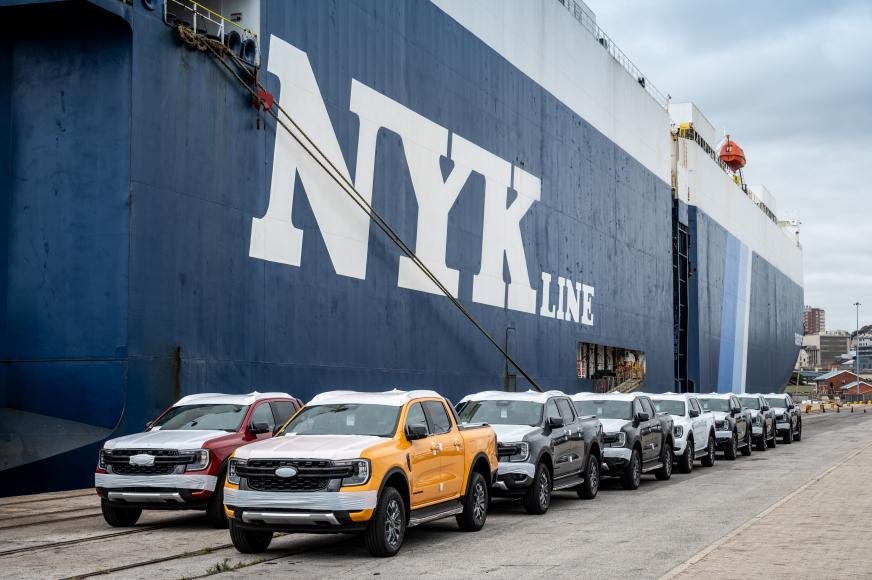Africa-Press – Lesotho. Do you realise that 2023 is an important year in so many dimensions/facets? Firstly, it marks 30 years since the restoration of democracy in Lesotho in 1993.
Secondly, it marks 25 years since the September 1998 political riots. Wow! Thirdly, His Majesty is turning 60 this year. This means he was only 30 in 1993.
And 31 in 1994. Interesting! This also means it has been 25 years since Sanlam Centre was burnt down in 1998 and never rebuilt. It also means it has been 30 years of political instability and economic stagnation.
Yes, since 1993. In other words, we could qualify these years (1993-2023), as 30 wasted years. Indeed, 30 wasted years and allow me to demonstrate how.
We failed to build new universities and killed the only one we have (This is tantamount to treason). Secondly, we killed our national pride, Lesotho Bank and replaced it with.
. Haai, ere ke thole.
(Let me tool!) Talking about Lesotho Bank.
Do you realise that the Bank Tower building is turning 40 this year? 40-years-old! Yes, it was opened in 1983 and has been the tallest building for the past 40 years. Damn! It means we’ve been stagnant for the past 40 years. Awee shapo! Let’s go into this week’s topic.
Our obsession to be recognised as a sovereign state inside the belly of South Africa makes us blind and somehow stupid to see low hanging opportunities available in South Africa that could yield fortunes for Lesotho.
However, because we see ourselves as an independent state, we travel all over the world seeking for ‘God knows what’ and leave opportunities lying literally next door.
The reason for these silly mistakes that we repeatedly make is because we fail to understand a very simple concept called ‘Supply chain’ or ‘Value chain management’. Let me make a simple example.
The Ford Motor Company injected R15.8 billion (US$1 billion) about three years ago to upgrade the Silverton assembly plant at the Tshwane Automotive SEZ (Special Economic Zone).
The reason for this upgrade was to enable the Silverton factory to be a global exporter of Ford Ranger vehicles to 100 export markets. 100! You won’t believe that Ford South Africa exports well over 200 000 vehicles per annum.
R200 000! That’s a lot of vehicles destined for the world. The question is, why isn’t Lesotho part of this value chain? For example, did you know that Ford Ranger engines are manufactured in Gqeberha (Port Elizabeth)?
Yes, and sent to Pretoria by rail for assembly onto the new vehicles. But the question is: Why isn’t Lesotho part of the supply chain/value chain? Why don’t we manufacture lights or seats? Why can’t we manufacture the tyres? That’s how the value chain works.
But at the same time, it means we need a proper container terminal. Why don’t we extend the rail network to Moshoeshoe One International Airport and have one of the largest inland ports in Southern Africa? Bear in mind that Lesotho has the shortest rail network in the world.
Yes, it is in the Guinness World Records. The shortest rail network in the world! But jokes aside, our obsession to gain recognition as a sovereign state has made us blind to see opportunities in the region.
For instance, I’ve been asking myself a very difficult question. Why is Lesotho so obsessed in exporting water to Botswana? Does it even make business sense? Of course not!
What Lesotho should’ve said to Botswana is, “Instead of supplying you with water, let me rather supply you with power/electricity. ” This is because the water was meant to supply a new coal fired power station in Botswana.
You might as well supply electricity. Why not? And what people fail to understand is that water becomes cheaper the more you send it in bulk as opposed to electricity.
Water is a ‘cheap’ commodity as opposed to electricity. That’s why Lesotho needs to position itself as one of the major electricity exporters of Southern Africa. And it’s possible because of the water. But let’s talk about the ‘Muela hydro-power plant.
Can it be upgraded to generate two thousand (2000) mega-watts of power? If yes, can that power be exported to Eskom in South Africa? The answer is yes! Engineers are meant to solve any problem in the world.
Here is my view, instead of trying to crack our heads on how we can re-open textile factories, we could respond and solve a crisis next-door that could give us immediate/instant results.
Look, an upgrade of the ‘Muela Hydro power plant could cost around R5 Billion and that’s a sizable project according to Lesotho standards. It could also generate thousands of jobs.
Imagine the power-lines that would need to be constructed in order to export power to South Africa. But, before we use our buzz-phrase (it’s impossible), let’s invite consultants from General Electric (GE) or China to see if we can’t up-grade the power-plant.
If we can’t, let’s move on to the Oxbow and Makhaleng Dam projects. But let’s move fast. The window of opportunity is slowly closing. This is the reason why I’ve been insisting that the National Strategic Plan (Part II) is a useless document.
It does not respond to immediate needs. Draft a new Development Plan now! Look at this case for example. There is nowhere in the NSDP document where they talk about exports of citrus fruits.
But the value of exports of citrus fruits is in the region of R30 Billion. Why are we not part of this value chain? Zimbabwe and Swaziland are part of it.
Let’s take advantage of it and export oranges. Let’s go! In closing, I think Lesotho has a real opportunity to have a new cash-cow. And that is to export electricity to the SADC region.
That is easy money. According to Minister Gwede Mantashe, load-shedding costs the South African economy R1 billion per day. R1 billion per day! The Shoprite Group said it has spent over half a billion rands on diesel for the past six months to keep stores running during load-shedding.
That’s a compelling business case. But our problem as Basotho is that we are slow by nature. Re batho ba stadig! We are slow to respond to opportunities that lie in front of us.
We are procrastinators and love to waste time debating issues and hosting endless workshops. Unless we see an opportunity in the South African load-shedding crisis, unfortunately, the ‘GRAVY TRAIN’ is going to pass through. Let’s act now and move fast to grab the opportunity in front of us.
For More News And Analysis About Lesotho Follow Africa-Press






